EP: EU's exit strategy on Afghanistan should contain 3 points
Angel Shoylev Juniour, November 19, 2010
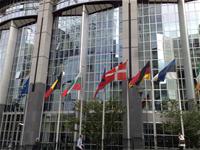 It is expected at the Nato summit the plan for a gradual withdrawal from Afghanistan to be announced. Nato forces are supposed to leave the country by 2014. In this context the priorities of the future EU's exit strategy for Afghanistan should be political, economic and social rehabilitation of the country. "It is time to acknowledge that military intervention in Afghanistan has failed and even led to a deterioration of security there", says a draft report on the strategy which was presented in the European Parliament.
It is expected at the Nato summit the plan for a gradual withdrawal from Afghanistan to be announced. Nato forces are supposed to leave the country by 2014. In this context the priorities of the future EU's exit strategy for Afghanistan should be political, economic and social rehabilitation of the country. "It is time to acknowledge that military intervention in Afghanistan has failed and even led to a deterioration of security there", says a draft report on the strategy which was presented in the European Parliament.
Europe clearly stands for the position of a peace-keeper and openly criticises the current methods used by coalition forces in Afghanistan. It seems that, unlike the US, the EU deems there is nothing shameful in negotiating with terrorists - it is planned in the strategy negotiations to start with all active combatant groups, aimed at imposing and keeping peace in the country. The report claims that EU's strategy needs a radical rethink and that Afghan citizens and authorities should be fully aware and get involved in a possible exit strategy.
As with time going by Afghan population is more and more perceiving coalition forces as occupiers, the future strategy should stand between the far military and the civilian approach by including concrete measures against poverty and women discrimination. MEPs offer the key elements of the new strategy to be:
- improving coordination of international aid;
- precise adjustment of EU's role and the inclusion of Afghan participants in the peace-keeping process;
- investing more efforts for more efficient police preparation, ready to tackle opium cultivation.
In the report MEPs rightly blame coalition forces for underestimating the situation in Afghanistan and, as a result, thus ignoring the efforts for recovery and development of the country. According to the European Parliament, the only useful and possible solution for Afghanistan, at this stage, should be political, expressed in peace negotiations with the Taleban and all the other combatant groups that show willingness to put an end to the war.
EU's three red lines
This is how the three conditions under which the EU will actively engage in the peace-keeping process are called. First, all parties should commit to banish Al Qaeda, as well as any other terrorist group. Second, to eliminate poppy cultivation and third - to establish respect for fundamental human rights. Significant attention must be paid to preparing the police forces and the standards for recruitment of new personnel for the law enforcement. The reasons is that, according to the report, the methods and criteria applied currently are not effective and are insufficient.
This had led to a high level illiteracy among policemen and many of them are inclined on using these same narcotic substances that coalition forces fight against. In order to improve the preparation of local police, the European Parliament offers the creation of a big training programme, led jointly by EUPOL (the European mission in Afghanistan) and NATO. Fighting drugs and their distribution should be one of the key priorities in the future EU strategy.
According to the report, 4 million Afghan citizens live from selling and distributing drugs, and each member of the police forces is a potential "consumer" or buyer. This is why, according to the EP, in order to lead an effective fight against drugs, the tightening of rules and preparation of police forces is of utmost significance.
Usage/abuse of international aid
One of the main problems which the EU has encountered is that a significant part of international aid is being lost because of inefficient allocation, dissipation of resources, abuses and corruption. According to the EP, the solution is half the aid to pass through Afghanistan's national budget in 2012. In response to the lack of coordination and transparency among international donors, the EP insists the EU to develop a centralised data base for all aid coming from the EU. The aim is directly more money to be disbursed for the realisation of more projects with the cooperation of Afghan institutions.
So far the war in Afghanistan costs, aside from the numerous human victims, 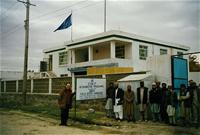 the dizzy $300 bn which is 20 times more than Afghanistan's GDP. According to the EP, as the supply for the US army is private, this raises concerns for blackmail and corruption. Besides, there is also a risk part of the money to fall into Taleban's hands and the hands of leaders of various criminal gangs.
the dizzy $300 bn which is 20 times more than Afghanistan's GDP. According to the EP, as the supply for the US army is private, this raises concerns for blackmail and corruption. Besides, there is also a risk part of the money to fall into Taleban's hands and the hands of leaders of various criminal gangs.
What remains to be seen is how these proposals will be taken into account in the future European strategy for Afghanistan and how it will be accepted by the Afghans themselves. The proposals in the draft report of the European Parliament are based upon two very important factors - reason and logic. There is the link between reason and consequence, which, I think, often lacks in the fight against terrorism and military conflicts. We are yet to see how a reasonable peace policy will stand up against the usual, rough and unjustified force.
Afghanistan will be the main topic on the agenda of the Nato summit which starts on Friday in Lisbon. euinside will give you the main moments of the summit in the next few days.
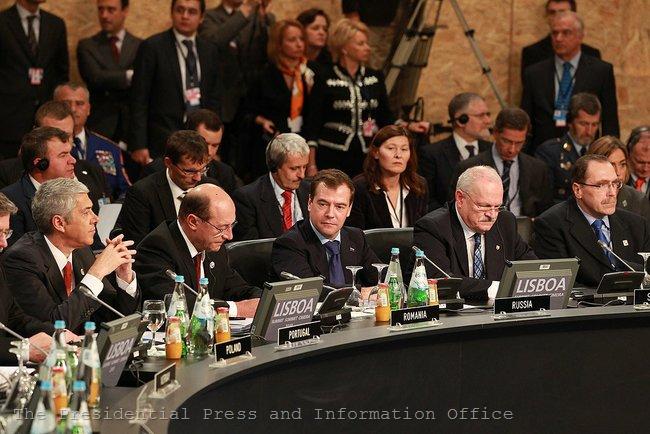 | © The Presidential Press and Information Office
| © The Presidential Press and Information Office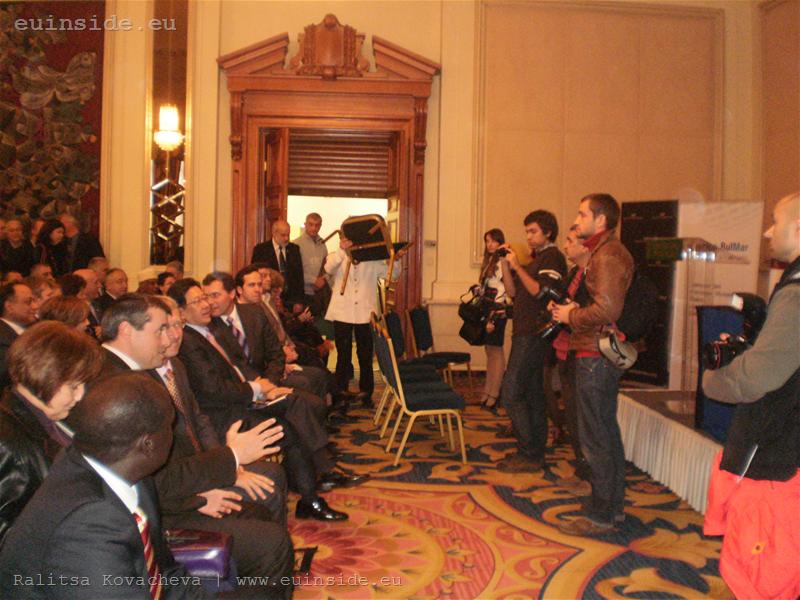 | © euinside
| © euinside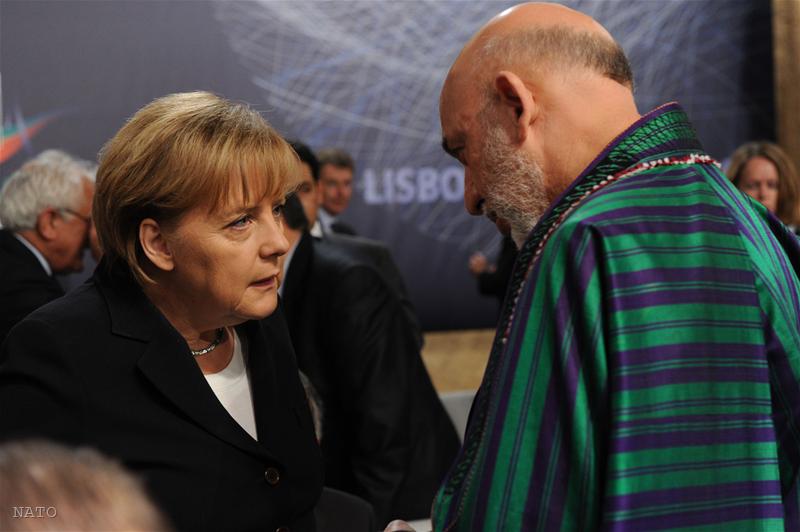 | © NATO
| © NATO